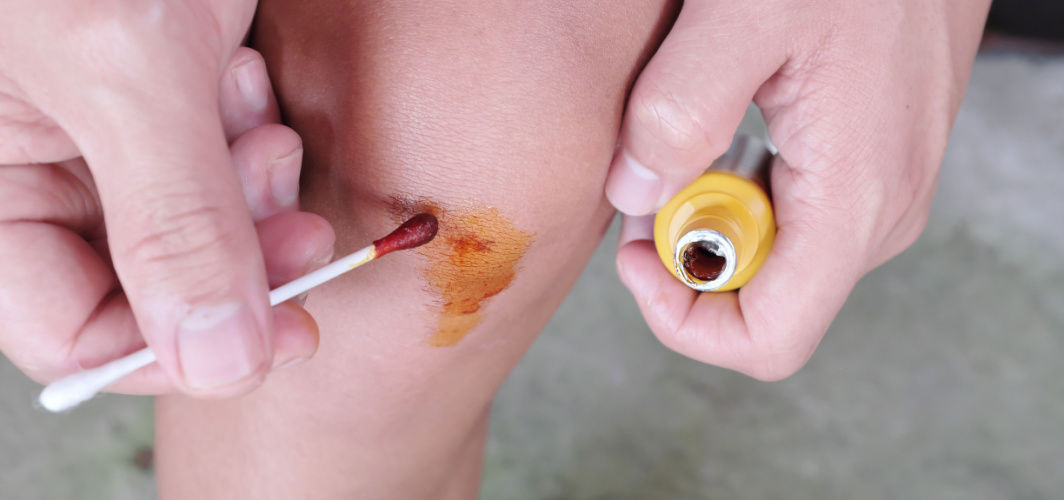Montelukast Sodium And Levocetirizine Hydrochloride Tablets: Allergy Control Combo
General Health
Montelukast Sodium And Levocetirizine Hydrochloride Tablets: Allergy Control Combo
By Apollo pharmacy, Published On- 03 June 2025
Share this article
0
0 like
.jpg?tr=q-80)
Allergies affect millions of individuals around the world, and their impact goes far beyond mere nuisance. Persistent sneezing, nasal congestion, itchy eyes, skin rashes, and even breathing difficulties can significantly disrupt daily life, sleep quality, and overall well-being. For many people, effective allergy management is crucial to maintaining a good quality of life.
Fortunately, combination medications like Montelukast Sodium and Levocetirizine Hydrochloride tablets provide a powerful solution for individuals struggling with allergic rhinitis, mild asthma, or chronic urticaria. This guide will help you understand how this dual-acting medicine works, who can benefit from it, how to use it correctly, and the precautions to be aware of.
What Is Montelukast and Levocetirizine Combination Therapy?
Montelukast Sodium and Levocetirizine Hydrochloride tablets combine two different types of anti-allergic agents that work synergistically to control allergy symptoms more effectively than either drug alone.
1. Montelukast Sodium
Montelukast is classified as a leukotriene receptor antagonist (LTRA). Leukotrienes are inflammatory chemicals released in the body when you are exposed to allergens such as pollen, pet dander, dust mites, or mould. These chemicals cause the airways to swell and produce excess mucus, leading to symptoms such as wheezing, coughing, and nasal congestion.
Montelukast works by blocking the action of leukotrienes, thereby reducing inflammation and preventing bronchial constriction. This makes it particularly useful for people with asthma or allergic rhinitis.
2. Levocetirizine Hydrochloride
Levocetirizine is a third-generation non-sedating antihistamine. It works by blocking histamine, another chemical released during allergic reactions that causes symptoms such as sneezing, itching, watery eyes, and a runny nose. Unlike older antihistamines, levocetirizine causes minimal drowsiness, allowing individuals to remain alert while managing their symptoms.
Why This Combination Works Well
This medication works well because it targets allergies through two complementary mechanisms:
- Montelukast blocks leukotrienes—chemicals that cause inflammation and tightening of the airways. Reducing this inflammation helps relieve respiratory symptoms such as wheezing, coughing, and nasal congestion.
- Levocetirizine blocks histamine, the chemical responsible for immediate allergy symptoms like sneezing, runny nose, itchy eyes, and skin irritation. It provides rapid relief from these symptoms without causing significant drowsiness.
By addressing both the underlying inflammation (with montelukast) and the immediate allergic response (with levocetirizine), this combination offers broader and more sustained relief than either medication alone. It is particularly useful for people with persistent, moderate to severe, or mixed allergy symptoms, such as allergic rhinitis with asthma or chronic hives, that do not fully respond to antihistamines by themselves.
Clinical research shows that this dual-therapy approach not only reduces allergy symptoms but also improves sleep quality, daytime alertness, and overall quality of life for many patients.
Who Can Benefit From This Medication?
Doctors may prescribe Montelukast and Levocetirizine combination tablets for the following conditions:
- Seasonal allergic rhinitis (hay fever)
- Perennial allergic rhinitis (allergies present all year round)
- Allergic asthma triggered by environmental allergens
- Chronic urticaria (hives)
- Allergic conjunctivitis
- Dust mite or pet allergies
It is generally prescribed for adults and adolescents aged 12 years and above. In younger children, paediatric versions or individual components may be prescribed under medical supervision.
How to Take Montelukast and Levocetirizine Tablets
Dosage and Administration
- Adults and adolescents (12 years and older): One tablet taken once daily.
- Children (under 12): Dosage must be determined by a paediatrician based on weight and age.
This medication is usually taken in the evening or at bedtime, as allergy symptoms often worsen during the night. It can be taken with or without food. Always swallow the tablet whole with a glass of water—do not chew or crush unless advised by a doctor.
Possible Side Effects
Like all medications, Montelukast and Levocetirizine tablets can cause side effects, although not everyone experiences them. Most side effects are mild and temporary.
Common Side Effects
- Drowsiness or mild fatigue (mainly due to levocetirizine)
- Headache
- Dry mouth
- Nausea
- Sore throat or cough
- Rare but Serious Side Effects
Mood or behavioural changes: Montelukast has been associated, in rare cases, with psychiatric side effects such as anxiety, depression, aggression, sleep disturbances, and even suicidal thoughts.
Allergic reactions: Rash, itching, facial swelling, or difficulty breathing. Seek immediate medical attention if these occur.
Palpitations or irregular heartbeat
If you experience any unusual or severe symptoms while taking this medication, consult your doctor immediately.
Important Precautions
Before starting this medication, tell your doctor if you:
- Have liver or kidney problems
- Have a history of mental health conditions (such as depression or anxiety)
- Have epilepsy or other seizure disorders.
- Are allergic to any of the components in the medication
Pregnancy and Breastfeeding
This medication should only be used during pregnancy or breastfeeding if clearly prescribed by your doctor. While both drugs are generally considered safe, comprehensive studies on their use during pregnancy and lactation are limited. Always discuss the potential risks and benefits with your healthcare provider.
Drug Interactions
- Montelukast and Levocetirizine may interact with certain medications, potentially affecting their effectiveness or increasing side effects. Inform your doctor if you are taking:
- Other antihistamines (may cause excessive drowsiness)
- Sedatives or sleeping pills
- Anti-epileptic medications such as phenytoin or carbamazepine
- Rifampicin (an antibiotic used to treat tuberculosis)
- Herbal remedies or over-the-counter medications
- Avoid alcohol while taking this medication, as it can increase drowsiness and reduce your alertness.
Lifestyle Tips to Support Allergy Treatment
Medication is an essential part of allergy management, but combining it with lifestyle modifications can further improve results.
1. Limit Exposure to Allergens
- Use dust-mite-proof covers on pillows and mattresses.
- Wash bedding in hot water weekly.
- Avoid keeping pets in bedrooms.
- Keep windows closed during high pollen seasons.
- Shower and change clothes after outdoor activities.
2. Improve Indoor Air Quality
- Use high-efficiency particulate air (HEPA) filters.
- Maintain low indoor humidity to reduce mould and dust mites.
- Clean air conditioners and fans regularly.
3. Stay Hydrated
- Drinking plenty of fluids helps thin mucus and relieve nasal congestion.
4. Monitor Your Symptoms
Keep a symptom diary to track what triggers your allergies and how well the medication is working. This can be helpful during follow-up visits with your doctor.
5. Maintain a Healthy Lifestyle
A balanced diet, regular exercise, and sufficient sleep can help strengthen your immune system and improve your body’s response to allergens.
When to See a Doctor
Even if your symptoms improve, regular follow-ups with your doctor are essential. You should review your allergy treatment plan every 3–6 months or as advised.
Seek immediate medical attention if you experience:
- Swelling of the face, lips, or throat
- Severe or sudden breathing difficulties
- Worsening chest tightness or wheezing
- Any unexplained behavioural or mood changes
Conclusion
Montelukast Sodium and Levocetirizine Hydrochloride tablets offer a safe, convenient, and highly effective solution for managing a wide range of allergy-related conditions. By targeting both the root causes and surface symptoms of allergic reactions, this combination helps improve breathing, sleep quality, and day-to-day comfort. To get the best results, always follow your doctor’s instructions, take the medicine consistently, and incorporate healthy lifestyle habits. Report any side effects promptly and stay informed about your treatment plan. If you have persistent allergy symptoms that are interfering with your life, speak to your doctor to find out if this combination therapy is right for you.
Services
General Health
Leave Comment
Services
Recommended for you

General Health
The Uses of Povidone-Iodine Ointment USP: A Comprehensive Guide
Learn about the various uses of povidone-iodine ointment USP and its effectiveness in preventing infections and treating skin conditions.

General Health
Brain Stroke: Symptoms, Cause, Diagnosis, Treatment, Prevention
Learn about the causes, symptoms, and treatment options of a brain stroke. Discover how lifestyle changes can help prevent a brain stroke.

General Health
101 Guide To An Effective Skin Care Routine For Oily Skin
Dive into effective skincare for oily skin with personalized routines, expert tips, and a journey to lasting results. Unveil radiant and healthy skin with expert tips.
Subscribe
Sign up for our free Health Library Daily Newsletter
Get doctor-approved health tips, news, and more.
